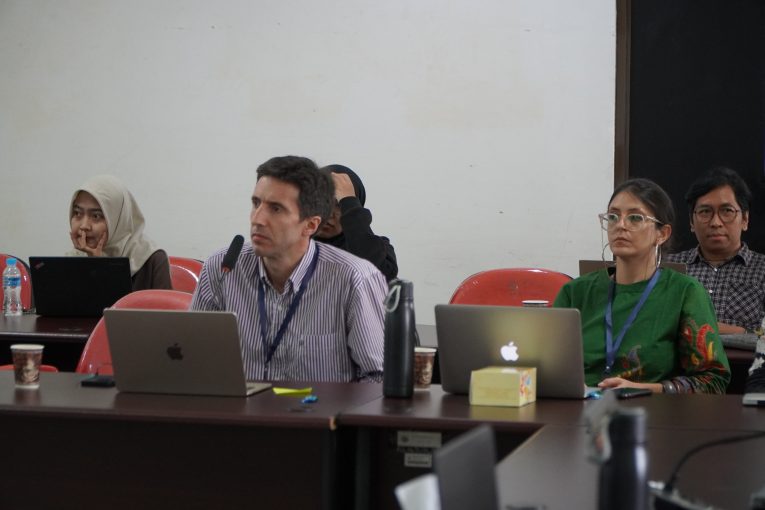
The Faculty of Philosophy at Universitas Gadjah Mada (UGM) welcomed a group of doctoral students and scholars from various countries on Tuesday, October 1, to study the role of philosophy and religion in the context of a technologically advanced world. This activity was part of the Globethics Doctoral School (GDS) program, which is a collaboration between Universitas Gadjah Mada and Globethics.
During the GDS session held at the Faculty of Philosophy, participants attended short lectures presented by two distinguished professors from the Department of Religious Philosophy, Prof. Dr. Lasiyo, M.A., M.M., and Prof. Drs. M. Mukhtasar Samsyudin, M.Hum., Ph.D. of Arts.
“Indonesian culture contains humanistic values, which can be found in many cultural components. Humanism in Indonesian culture is relevant to the second principle of Pancasila: a just and civilized humanity, which also strengthens the application of its values as it grows and achieves global brotherhood,” explained Lasiyo.
Lasiyo further elaborated on the religious and cultural context in Indonesia. While religion and culture cannot be equated, he emphasized that they can influence each other. Religion impacts belief systems and life practices, while culture can also shape religion, particularly in how religion is interpreted and how rituals are practiced.
At the same session, Mukhtasar explained how Indonesia’s rich cultural and religious diversity requires an ethical framework that respects local traditions while addressing global challenges. Engaging with philosophy allows for a critical examination of values and beliefs, while technology provides tools for effective communication and innovation.
“Building bridges between philosophy, technology, and religion in Indonesia is crucial to fostering a cohesive and inclusive global ethical approach. As Indonesia faces urgent global issues such as climate change, inequality, and social justice, an integrated ethical framework can guide effective responses,” Mukhtasar said.
The program was attended by 11 doctoral students from Rwanda, India, Burundi, Myanmar, Colombia, and Indonesia. Additionally, researchers from Globethics, hailing from Switzerland, Germany, and Argentina, also participated.
The topics discussed in this session align with the main theme of the GDS program, “Ethics of Inclusive Peace and Responsible Governance,” which addresses how to tackle the ethics deficit. This theme is highly relevant in the context of corruption, lack of transparency, and accountability, highlighting the urgent need for ethical leadership across sectors.
“Indian and Indonesian philosophy place significant emphasis on the social aspect. In this ever-evolving technological world, it is interesting to see how technology can be used as a tool to achieve equality rather than exacerbating disparities, as we often see,” said Jason Kokkeragadda, one of the participants from the Indian Advanced Institute for Research on Religion and Culture (ARRC).
